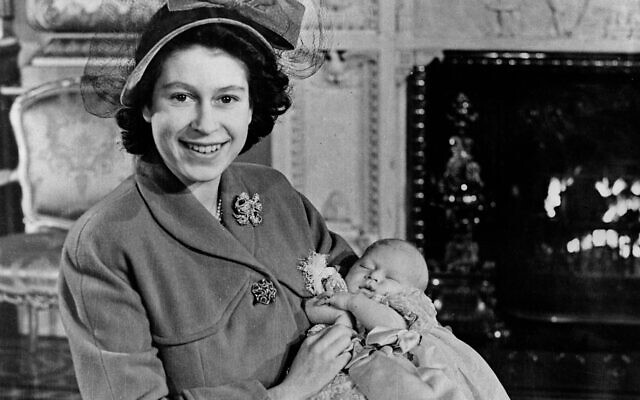Call the (Jewish) midwife: Kindertransport nurse was the first to hold the King when he was born
German Jewish refugee assisted at King Charles' delivery in the music room at Buckingham Palace
Louisa Walters is Features Editor at the Jewish News and specialises in food and travel writing
On 5 July 1939 two Jewish sisters from Berlin – Ingelore (15) and her sister Marion (11) Czarlinski – arrived in Harwich, a port town in Essex, on the Kindertransport. Just nine years later, Ingelore (now Susan) was the first person in the world to hold the future King Charles in her arms.
Susan, who had coincidentally changed her surname to Charles, had followed in the footsteps of two of her aunts and trained to become a nurse. She got a job working for obstetrician Sir William Gilliatt, who was chosen by the young Princess Elizabeth to attend the birth of her first baby, by caesarean.
Marion wrote in the Association of Jewish Refugees magazine in September 2005: “On 14 November 1948 I invited my sister to tea at my flat in Clapham. The phone rang and an official voice asked her to ring a Whitehall number immediately. Soon after a car came for her. When she arrived at Buckingham Palace she prepared the princess for delivery. The senior nurse assisted Sir William with the operation and Susan waited in an ante room with Prince Philip, who told her she reminded him of the beautiful Greek girls he had known when he was young. Eventually she was called into the delivery room and given Prince Charles to hold until his grandmother, the Queen Mother, took him from her.”
Charles was born at 9.14 pm in the music room at the palace, which had been converted into an operating theatre. He weighed 7lb 6oz. Obstetrician Sir John Peel and midwife Helen Rowe were also in attendance.
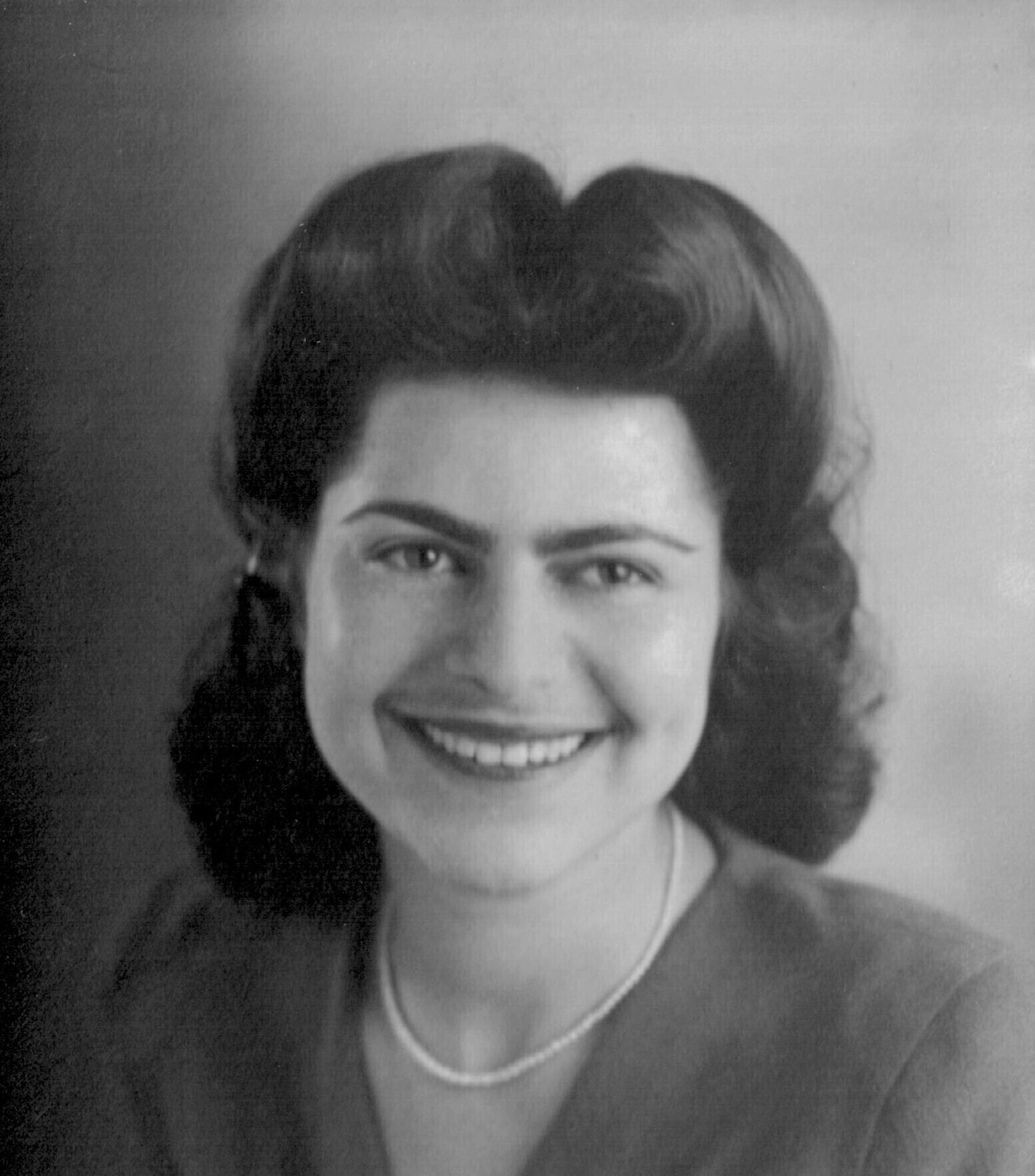
Marion explained that Susan was chosen for this role because not only was she a dedicated nurse, she was also incredibly discreet. So discreet in fact that her two daughters, Rebecca and Debra, didn’t know anything about their mother’s important role in the future king’s life until she and their father were invited to Princess Anne’s wedding in 1973. “We were naturally surprised and very curious as to why our parents were invited to a royal wedding, so our mother sat us down and explained,” says Debra.
Susan died in 1994 so when Prince Charles hosted a reception at Clarence House on 5 July 2005 for Kindertransport children Marion had to go alone. “I told him I was lucky to arrive in England 66 years earlier, but that my sister was even luckier as she was the first person in the world to hold him,” wrote Marion. “He seemed fascinated, so I told him the whole story. At the end of the reception he said, ‘What a small world it is. Here is the sister of the nurse who looked after me when I was born. She even saw me being bathed. What a sight I must have been!’”
Susan was also called upon to be at the birth of Princess Anne, but that was a natural delivery and in the end she wasn’t needed.
Aged 15 Susan was only just within the age limit for the Kindertransport. “If she was any older she would not have been allowed to come in on the Kindertransport. She would have had to come over as domestic help, which would have been a totally a different mechanism,” explains Debra.
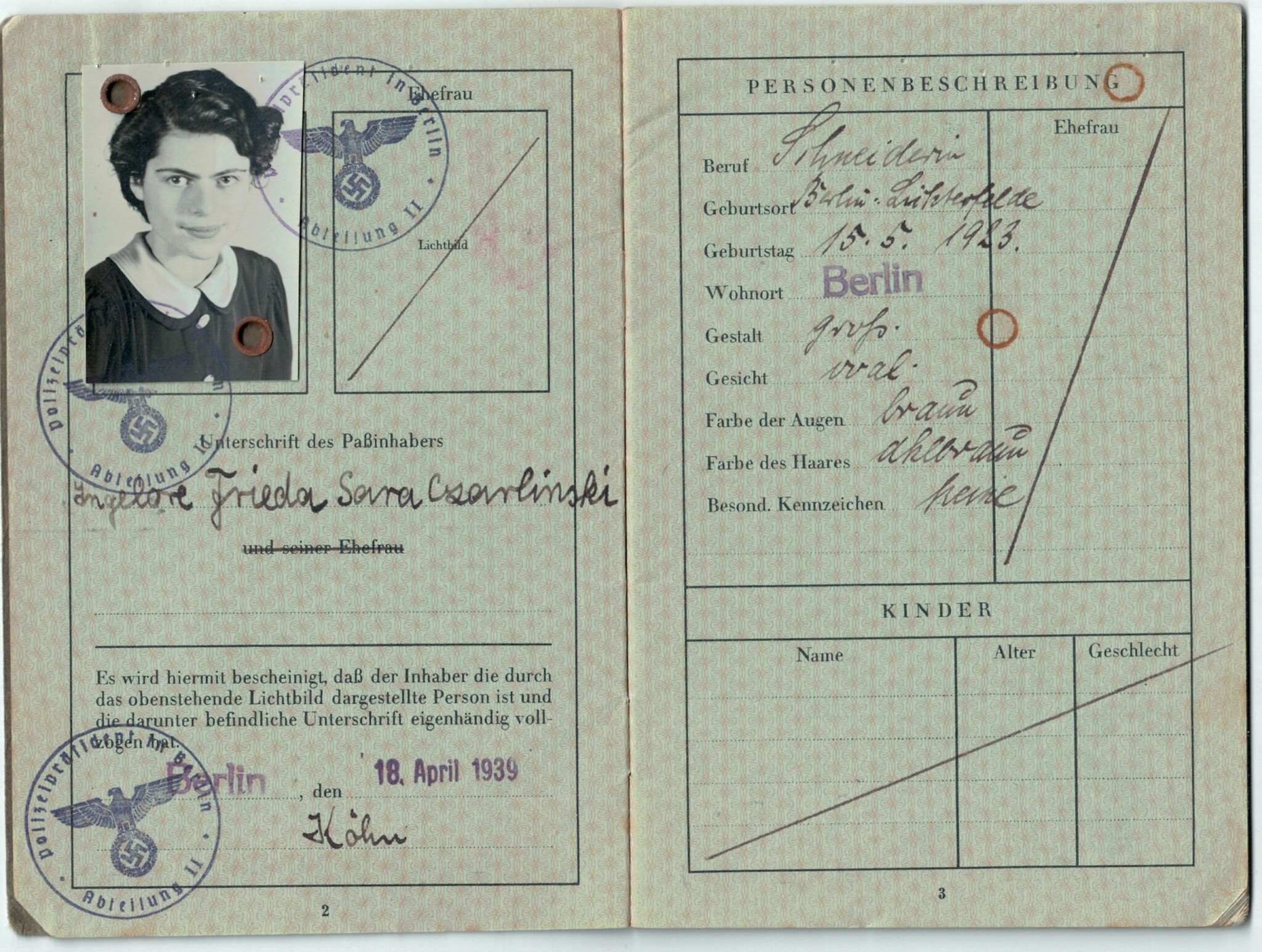 The sisters were separated and sent to live with different families in Cambridge, but they were very much in touch. “We have lots of documentation from World Jewish Relief of communication between our aunt and our mother,” says Debra. “As our mother was older, if anything needed to be decided for our aunt, Susan was always contacted.”
The sisters were separated and sent to live with different families in Cambridge, but they were very much in touch. “We have lots of documentation from World Jewish Relief of communication between our aunt and our mother,” says Debra. “As our mother was older, if anything needed to be decided for our aunt, Susan was always contacted.”
The sisters’ parents remained in Germany during the war. “Our grandfather was wounded in the First World War. And then sadly, because he had to say goodbye to his both his daughters, who were his life, he died of a broken heart,” says Rebecca. “Our grandmother was hidden by a German family but somehow she still managed to go out and about in Berlin. She dyed her hair blonde, so she didn’t look Jewish, and she dressed up as a nurse. Eventually she came to the UK in 1947. She lived until she was 85.”
Susan rarely spoke about what happened in Germany and why she had to leave. Debra says: “She didn’t want to talk about it but she gave us snippets over the years.”
Susan and her husband Manny were dating at the time of Charles’ delivery. “Our father always tells the story that he went to the palace gates to meet her when she came out. She later went for tea with the Queen and the physician, and they just sat in the palace having sandwiches,” says Rebecca, who coincidentally has her own connection with the royal family. “I am a caterer and once catered a private event for Prince Andrew. I told him that my mother had been at the birth of his brother, which he thought was a real coincidence.”
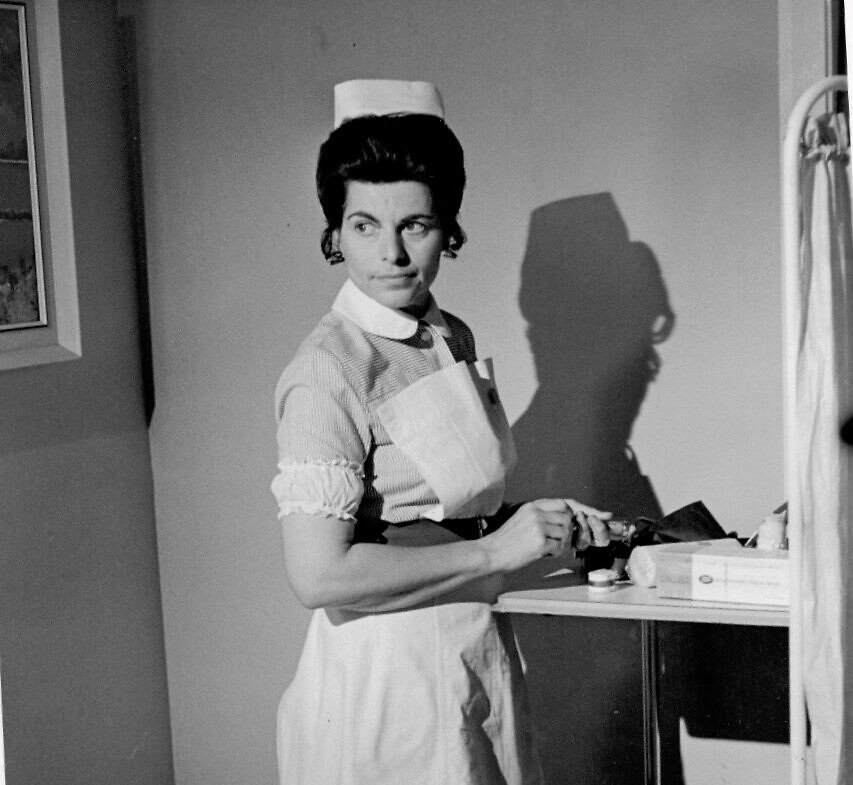
Susan gave up nursing to look after her daughters when they were young. When they were old enough go to school she went on to become a location nurse in the film industry, often working on set with her husband, who was a stunt man. She was also sometimes called upon to be an extra, and appeared in her nurse’s uniform in The Omen.
Susan always had a keen interest in the royal family. “I definitely think she felt a connection,” says Debra. Did Charles get named after her, I wonder? “Maybe!” says Debra, laughing, “I never thought of that!”
When their mother died Rebecca and Debra told some of her friends about their mother’s special royal role and discovered that they never knew.
In September 2022 the two ladies were invited to the unveiling of ‘Safe Haven’, a Kindertransport memorial statue in Harwich.
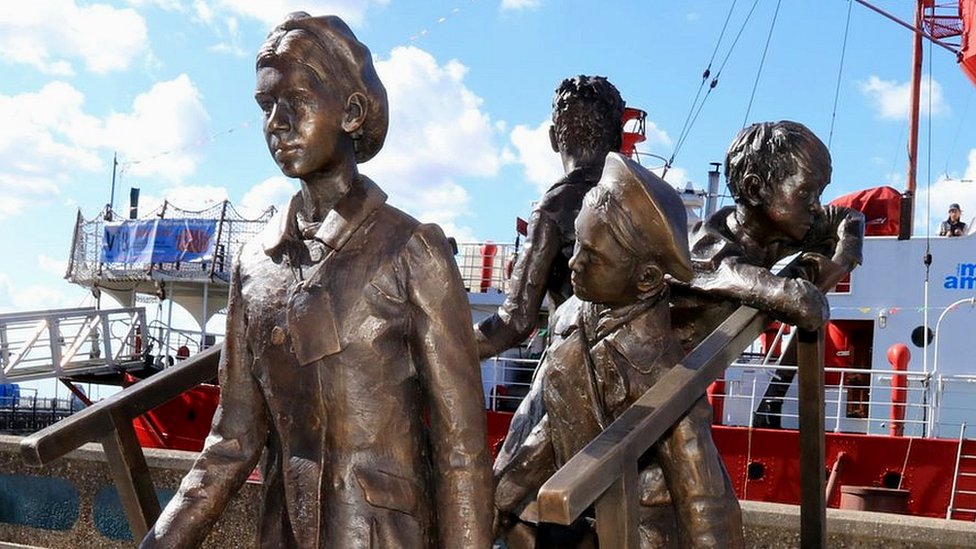
“It’s an amazing statue, says Debra. “It’s so moving. It features five children, each facing a different way so they represent the coming, the going, the happiness, the sadness.”
The statue pays homage to Harwich’s maritime role; the children are seen descending from a ship’s gangplank on to dry land. A land on which a German Jewish refugee became the first person to hold the baby who would become King.
Our news editor @CohenJust reflects on our new King’s constant support for the Jewish community.
Long live the King!#Coronation pic.twitter.com/Vn8yacU20G
— Jewish News (@JewishNewsUK) May 5, 2023

Thank you for helping to make Jewish News the leading source of news and opinion for the UK Jewish community. Today we're asking for your invaluable help to continue putting our community first in everything we do.
For as little as £5 a month you can help sustain the vital work we do in celebrating and standing up for Jewish life in Britain.
Jewish News holds our community together and keeps us connected. Like a synagogue, it’s where people turn to feel part of something bigger. It also proudly shows the rest of Britain the vibrancy and rich culture of modern Jewish life.
You can make a quick and easy one-off or monthly contribution of £5, £10, £20 or any other sum you’re comfortable with.
100% of your donation will help us continue celebrating our community, in all its dynamic diversity...
Engaging
Being a community platform means so much more than producing a newspaper and website. One of our proudest roles is media partnering with our invaluable charities to amplify the outstanding work they do to help us all.
Celebrating
There’s no shortage of oys in the world but Jewish News takes every opportunity to celebrate the joys too, through projects like Night of Heroes, 40 Under 40 and other compelling countdowns that make the community kvell with pride.
Pioneering
In the first collaboration between media outlets from different faiths, Jewish News worked with British Muslim TV and Church Times to produce a list of young activists leading the way on interfaith understanding.
Campaigning
Royal Mail issued a stamp honouring Holocaust hero Sir Nicholas Winton after a Jewish News campaign attracted more than 100,000 backers. Jewish Newsalso produces special editions of the paper highlighting pressing issues including mental health and Holocaust remembrance.
Easy access
In an age when news is readily accessible, Jewish News provides high-quality content free online and offline, removing any financial barriers to connecting people.
Voice of our community to wider society
The Jewish News team regularly appears on TV, radio and on the pages of the national press to comment on stories about the Jewish community. Easy access to the paper on the streets of London also means Jewish News provides an invaluable window into the community for the country at large.
We hope you agree all this is worth preserving.


